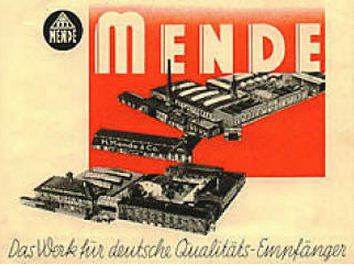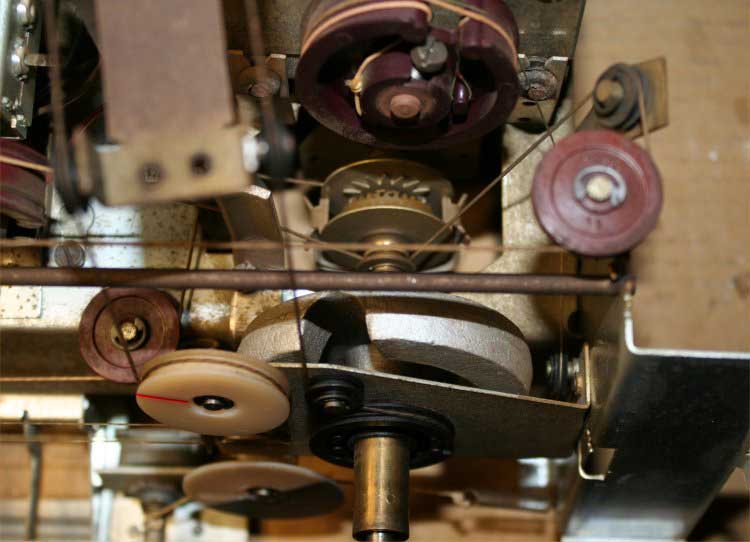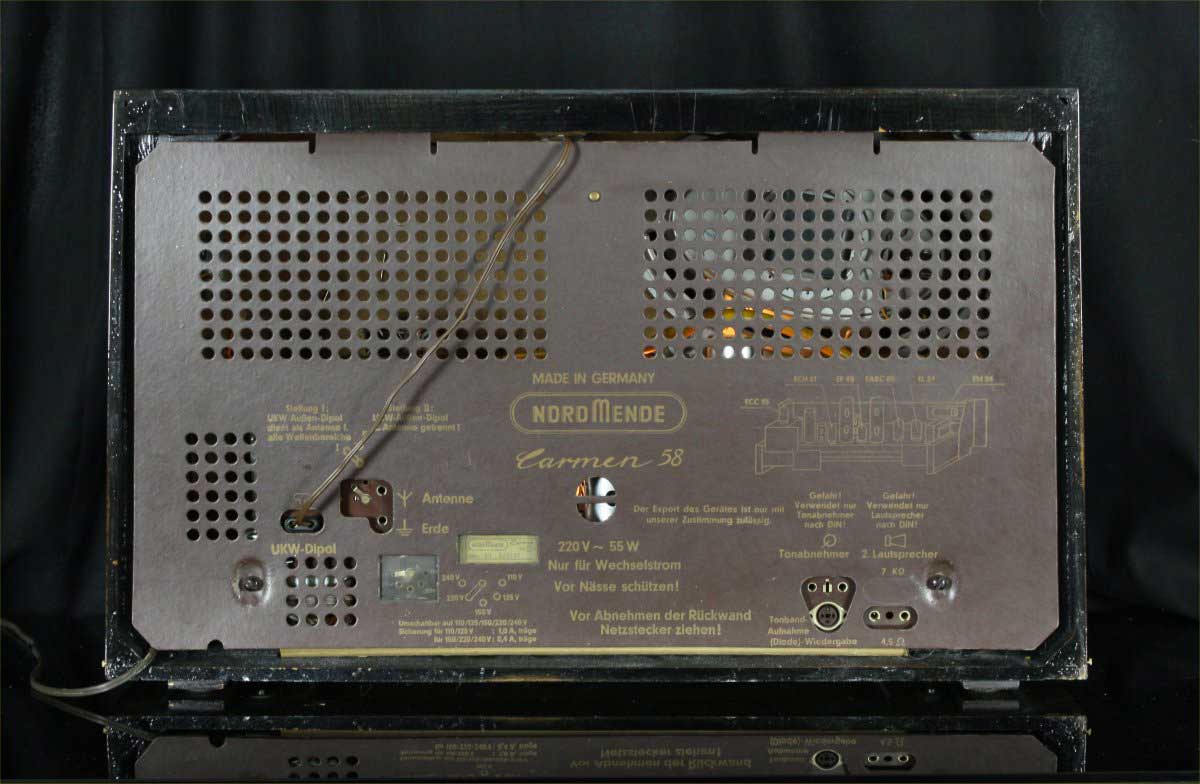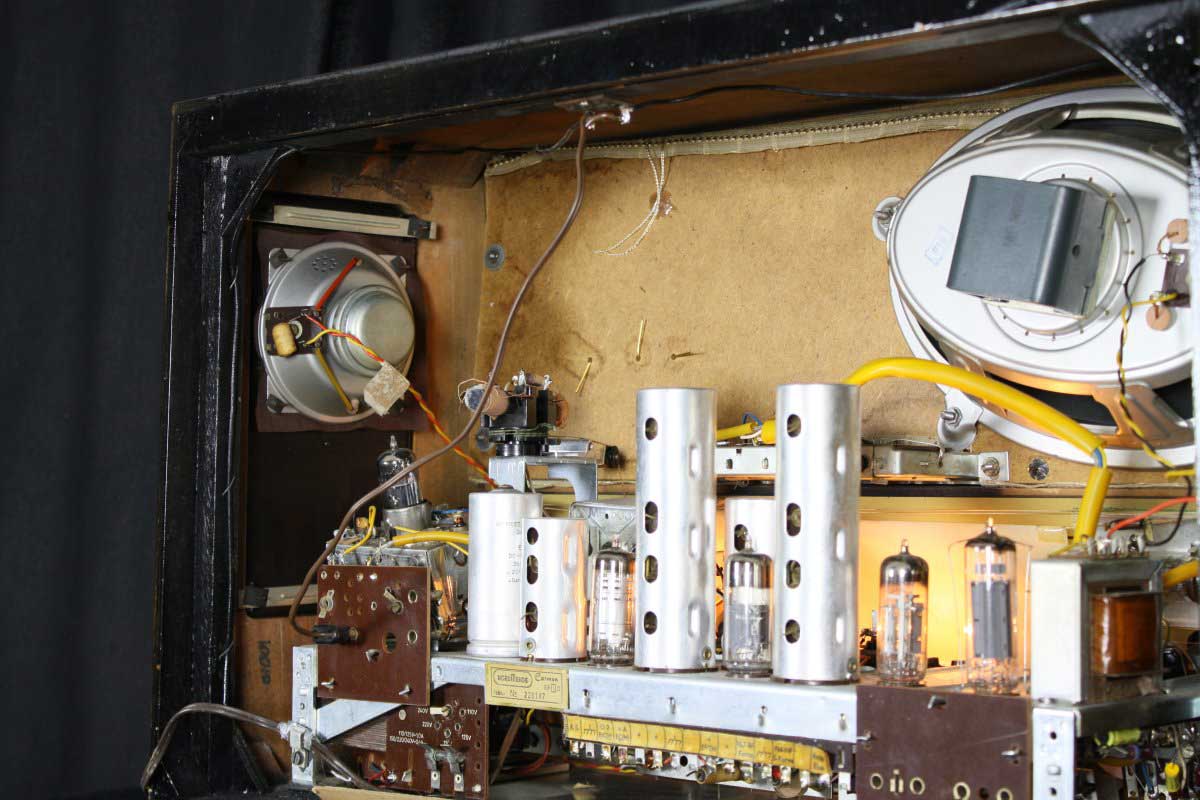 carmen 58 - en
carmen 58 - en
Nordmende Carmen 58 – en
- by giovanni
Nordmende Carmen 58
NORDMENDE CARMEN 58
Produced in 1958, the Carmen belongs to the Nordmende middle class tube radios.
But what makes this Carmen 58 stick out from the other middle class radios is its elegance.
Nordmende was carefully naming its radios and even in this case the name Carmen suits this product perfectly.
With Carmen 58 Nordmende designers began a line of products with clean and elegant shape. As the older models the quality of the materials represent Nordmende at its top. High quality wood, metals and plastics.
The cabinet is mirror painted. And its infinite reflections catch the eye.
And so the Carmen become the queen of the house. It could not be otherwise with that personality.
Our professional restoration process further enhanced this feature, giving new life to a classical handmade object that is now ready to work for many more decades.
We have been trying to place this radio in different locations: in the end we realized that this Carmen fits perfectly with a classical and refined ambience.
As older Carmen the Model 58 sound deep and refined. The separate tone controls, the A Class final stage, the triode preamp, the efficient feedback system that linearizes the response are all elements that make the sound of this radio a very warm and pleasant listening experience.
A cheerful and bright sound, aggressive silhouette.
If it were a shoe would be a Size 12 Womens Heels

-
BLUETOOTH
Bluetooth receiver embed -
MULTI PLATFORM CONNECTION
Each radio is equipped with a cable for connection to any digital device.
TUBESOUND IMPROVEMENT
- Bluetooth receiver embed - The unit is equipped with a BLUETOOTH receiver powered directly by the receiver power supply. This makes it possible to control the amplifier from any external digital device as an IPAD, a Smartphone, or a sophisticated multimedia station. So you can hear your preferred web station or your lossesless file without cables on the room. Wireless Receiver can be equipped upon requests.
- Multi Platform Connection - A customized adaptation cable to connect any digital device as Iphone, Smartphone, Laptop, CD Player etc. will be provided with this radio. This special cable suits the different impedances between the modern equipment and the receiver. Furthermore the two stereo channels flow into one without increasing the load to the input unit.

HISTORY
In 1923 Otto Hermann Mende founded Radio H. Mende & Co. in Dresden. After the bombing of the factory in 1945, Martin Mende (son of the founder) created a new company in Bremen, the "North German Mende Broadcast GmbH" whose name was later changed into NORDMENDE.
In the 50s and 60s it became one of the most prestigious German TV and radios manufacturer.
In the 70s the televisions by NORDMENDE became famous for their frames, cards and for the rigorous testing and quality controls carried out on their finished products. Unfortunately, the high cost involved in such detailed quality determined a competitive disadvantage when the price of color television began to fall.
In 1977 the majority of the shares was sold to the French Thomson. The following year, the family sold the remaining shares. In 1980, the factories of Bremen was closed, NORDMENDE becoming purely a trademark of Thomson.
MAIN FEATURES
Year of production: 1957/58
Superheterodyne IF 468/10700
8 AM Circuits
11 FM Circuits
Wavebands:
Medium Waves (OM), Long Waves (OL), Short waves (OC), FM (UKW)
1 Elliptical wideband
2 side Tweeters
Dimensions (LHD): 605 x 370 x 270 mm
23.8 x 14.6 x 10.6 inch
Net weight: 12 kg / 26 lb 6.9 oz
6 Tubes:
ECC85, ECH81, EF85, EABC80, EL84, EM84

TONE CONTROL WITH LEVEL INDICATION
The tones control system is very efficient. Above the large tone control knobs there is a band that lights up gradually indicating the emphasis on the band on which it acts.
EQUALIZATION KEYS
The frequency response correction system is made of 6 keys that insert preset equalization curves operating on the feedback circuit (they are not passive filters).
This solution was adopted only on the upper class models.
The Bass key emphasizes the bass.
The Sprache key emphasizes the mids for a cleaner listening to broadcasts spoken.
The Horspiel key leaves the control to the tone knobs.
The Orchester key puts in the flat passband.
The Solo key slightly accentuates the mids to encourage listening to individual instruments.
The Jazz key emphasizes the very low and high tones to encourage listening to this kind of music.


AERIALS
Inside the cabinet there is a dipole for FM reception and a ferrite rotating aerial for AM reception.
Ferrite aerial can be rotated from the outside to achieve a perfect tuning of the device in the AM.
In this picture see the rotation mechanism and the position indicator of the aerial.
The reception sensitivity with internal aerials is very good. This unit was in fact produced in a period when there were not many radio stations and those available fairly apart from each others.
Using an external aerial sensitivity is further increased.
SEPARATE CONTROL TUNING BETWEEN AM AND FM
The tuning system is another gem.
The unit is equipped with mechanisms for keeping separate the AM and FM bands.
The tuning knob is single but a selector switch commutes into cable systems (all in steel) and pulleys separated depending on the band.
The movement is transferred to both mechanisms with a system of pulleys and separated gears.


TUNING INDICATOR
The magic eye has of course been replaced.
LOUDSPEAKERS
The front speaker is a large ISOPHON elliptical broadband .
The sound is beautiful, very deep bass and clean treble thanks to the side protected cones, as the HI-FI speaker of the following decades.
Of course I'm not speaking here of High Fidelity, but the warmth and charm not found in modern devices.
In the center under the speakers panel we find the Equalizaton keyboard.
To the left is the volume control (with loudness built-in).
Pulling the volume knob we obtain a narrow station tuning on MW band (udible high frequencies increased)
After we find the magic eye that indicates the perfect tuning station.
Continuing we find the FM and AM main display for Long Wave Medium and Court bands, Ferrite aerial position display.
Finally, there is the tuning knob.Coaxially there is the ferrite antenna control.
Under the dialglass we find the bass control equipped with indicator on the main dialglass.
To the right in the order there are the Turntable, LW, Ferrite aerial, MW, SW and FM keys.
Further we find the treble control equipped with indicator on the main dialglass.

REAR SIDE
Output for external speakers.
Socket for recorder (tonbandgerat).
Turntable input (Tonabnehmer)
AM and FM aerial inputs and ground socket.
THE USUAL AMAZING LAST IMAGE




















